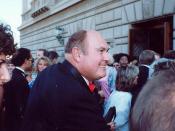Willard Brown was born April 9th, 1731 of Liverpool England, where he was raised by his middle class family in the 1730ÃÂs and 1740ÃÂs. The family worked as farmers, and merchants, selling what food they had grown and collected from their estate. Willard was taught his entire life to respect the royalty of England, and to be honored to give for your countrymen. WillardÃÂs father taught him everything that he knew about farming and upkeep of the lands that they have depended on all of his life. His father was also a carpenter; he taught Willard how to make furniture that they sold in the market place as well the food they had grown. WillardÃÂs mother would also take him to the town square where she would sell all of the goods the family had grown or made. Willard was home schooled by his mother and father constantly while working side by side in the fields or in the town square.
Willard stayed at the farm until the age of 20, from there he went to London to start a life of his own.
In London he found a man that wanted to sell his shop. Willard bought the shop with most of his life savings. With a little work he had the shop the way he wanted, and shortly opened it to the public. Willard became a well known merchant selling a variety of items. He became successful very quickly. Shortly after he was well established in the community he found a lady that he became very interested in. Her name was Ella, and she was also interested in Willard. They were married and wanted to start a family.
Willard and Ella had 3 children together, the first of which was John, the second was William, and the third was Emily. Each child was born not even a full year apart from one another. Just as WillardÃÂs father and mother had done for him, he taught his children everything that he knew about making money and surviving. Preparing them for when they want to venture out into their own life.
In 1765 Willard was offered a chance to go to the English Colonies America, and was promised sure success there. Thinking of his childrenÃÂs future, he figured that they would have a better chance in fulfilling their dreams in the new world. So he and his family set sail for the Americas and for their new home. After their voyage landing in Carolinas the family had decided to look for farm lands to start over in the new world. They settled in Charleston Virginia on a plantation with plenty of farm land. Just as Willard had hoped, this new place was profitable and his family loved everything about the new world.
He and his sons worked the farm land to provide food for them and to sell in the town market place. They also began their wood work to sell for the time being until the crops came up. One day in the market place a caged wagon pulled in, there were people inside that Willard had never seen before. They were dark skinned men and women, which were chained to each other. A man got out of the driver seat of the wagon and called out, ÃÂSlaves for sale.ÃÂ Willard had heard of slaves but had never seen them; he walked up to the wagon and looked at them. While looking he notices abrasion on almost all of them, as if they had been beaten recently. Willard didnÃÂt like this at all, so he bought the slaves to come live with him. Willard made it known to the men and women that he bought, that they were not slaves anymore. They could help with the farm lands and other chores to earn their food, home and clothing. They were so happy that they got right to work.
For nine years Willard and his family prospered well from their plantation, and Willard became a member of the Charleston Council. Much to his dismay, he found that the thirteen colonies of America were trying to establish independence from the British Empire. Willard knew that this would result in a war with England and pleaded with the other members of council not to have anything to do with it. They then started to call him such things as a Loyalist or a KingÃÂs Men. Willard then told them that he didnÃÂt want to see a war between the colonies and England, and that there must be another way. He also said that England has been good towards him and his families all of his life, and that they should all think of what is best for them and own families. War would cost the lives of thousands of men, and that the British army was too powerful to overthrow. He asked why they wanted to start a war that they had very little chance of winning. He also spoke about England being brethren to many of the settlers of the colonies, and that it would be like fighting your fellow countrymen. They still mocked him and quoted to him, ÃÂNo taxation without RepresentationÃÂ. Seeing that he was not getting anywhere trying to persuade them otherwise, he told them that he was against and that nothing would change his mind.
The next year the council had to vote on a levy to provide money for the war. During the meeting everyone spoke of their opinions and most was for the levy to pass. Willard along with few other ÃÂLoyalistsÃÂ, tried to persuade the others that this was not the road to take. But despite his efforts the levy passed and Charleston levied money for the war. Willard and his family were considered traitors to most of their fellow countrymen, and their business in the market place almost came to a screeching halt.
WillardÃÂs sons were also being mocked of their fatherÃÂs actions and words, and had gotten into fights. They were not happy about this, and being old enough to sign up for the Confederation army they did so. They didnÃÂt want to be looked down upon by their surrounding countrymen. Willard was very displeased of this but there was nothing that he could do to stop them. So Willard went about his farm work to provide for his remaining family.
Soon the war had started, and not long after did its battles make its way to Charleston. One day Willard heard a battle that was very close to his plantation, a few short hours later a British commander and troops arrived at his door. The commander asked for care of his wounded soldiers in the name of the king. Willard was still loyal to the king and agreed to provided shelter food and care for his soldiers. Willard believed that this was the best way to protect his wife and daughter. The commander thanked him and said that he would be rewarded later on. WillardÃÂs plantation became an outpost for the British army.
The British seized control of Charleston in 1780 and not too long after news of his sonsÃÂ death in battle. While mourning of this tragic event he became disgusted with himself for ever coming to America. So he declared that the slaves that he bought be free and signed the plantation over to the king. Willard thought that it would be best for his wife and daughter to return to England. So they went back to Liverpool to find that WillardÃÂs father had died and his mother had become ill. She too died 2 months after their return, and Willard inherited the lands of his parents.
In 1781, news of the war ending in the Colonies of America made its way throughout England. Willard was surprised to hear that the British Army had fallen to a lesser power. He still regretted that it had to end in war, and that so many lives were lost including the lives of his sonsÃÂ. Willard lived the remainder of his life wood working and farming in Liverpool. He died at the age of 84 on September 2nd, 1815.
Bibliography:ÃÂLoyalistsÃÂÃÂ source: http://www.wikipedia.comÃÂThe American Revolution: The Ultimate Question and Answer BookÃÂ by: Stuart A. P. MurrayÃÂThe Unfinished NationÃÂ: Intelicom Video Series
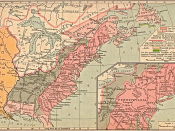
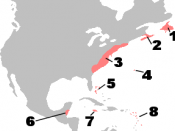
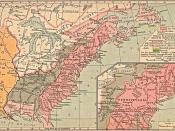
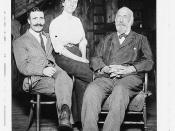
![1. Sen. Ben Tillman, 2. John E. Osborne, 3. J.B. Sanford, 4. P.L. Hall, 5. Governor [Woodrow] Wilson, 6. Norman Mack, 7. Willard Saulsbury, 8. J.E. Davies, 9. J.R. Mountcastle, 10. Cong. Talbott (LOC)](https://s.writework.com/uploads/8/89999/1-sen-ben-tillman-2-john-e-osborne-3-j-b-sanford-4-p-l-hall-thumb.jpg)
